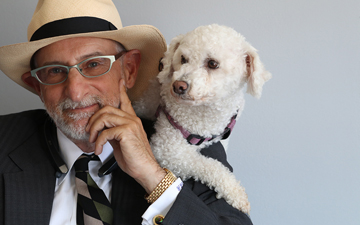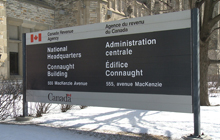Is the CRA’s public shaming an effective deterrent of tax evasion?

The CRA is sending a clear message that tax evasion does not pay, says David J. Rotfleisch
TORONTO – The Canada Revenue Agency publicizes tax evasion convictions as part of the concept of general deterrence. The practice has a long tradition. In Victorian England, pickpockets were hanged for their crimes — and their hangings were often worked by other pickpockets. So, the effectiveness of the concept of general deterrence has long been in question.
Today, we can think of it as public shaming, akin to being a registered sex offender. There is no question, however, that the CRA’s general deterrence news releases make for interesting reading.
Accountants also have to be careful not to become inadvertently caught up in client tax evasion because of the risk of third-party advisor penalties.
Take, for example, the case of Cabot Ford Lincoln Sales Limited, a St. John’s Newfoundland car dealership, and Frank Clarke, who controlled the company, each convicted of one count of income tax evasion over three years from 2009 to 2011. The amounts were fairly low, consisting of personal expenses claimed in the Corporation related to $23,000 of driveway paving, over $9,000 for shelving, and approximately $38,000 in landscaping.
The taxpayers, Cabot Ford Lincoln and Clarke, were sentenced to fines of $90,000, $33,000 and $57,000 respectively, being 100 per cent of the taxes evaded. They were also charged civil gross negligence penalties of $47,000.
There is no suggestion that the accountant knew that personal expenses were being claimed. But presumably, the accountant did attend at the dealership. Shelving and driveway pavement would not be obvious improvements to the dealership, so the accountant would not be expected to have noticed them. Landscaping improvements should have been a red flag.
Did the accountant ask questions? Dealerships typically have audited financial statements because of third-party financing. At the very least, it should have been a review engagement.
Should the accountant have been aware of this tax evasion? In the summer of 2000, Parliament introduced new penalty provisions to the Income Tax Act relating to third party tax advisors such as tax accountants or tax preparers.
There are two penalties: a tax planner’s penalty [Subsection 163.2(2)] and a tax preparer’s penalty [Subsection 163.2(4)]. The preparer penalty applies to anyone who participates in making a statement to, or on behalf of another, where that statement is known to be false or would reasonably be known to be false, but for the presence of culpable conduct.
In the absence of actual knowledge that the statements are false, the third party tax penalties are applicable to a person if culpable conduct is present. Culpable conduct is not merely the failure to exercise a reasonable standard of care. It is not a type of negligence, but rather an act or failure to act that would be considered intentional, willful or reckless disregard for the truth or indifference as to whether there is compliance with the Tax Act.
So, back to our car dealership.
Did the accountant ever visit his client’s house? Did he not notice the new landscaping at the house and not at the dealership? You can see how easy it would be for CRA to try to allege culpable conduct in this case even where the accountant is completely blameless. This points out the importance of diligence and note taking by the accountant to provide a defence should CRA become more aggressive in applying third-party penalties.
A totally different tax fraud occurred with Edmonton accountant and tax preparer Chander Mohan Sharma, who was found guilty of one count of defrauding CRA of more than $5,000. He was convicted of filing $2.9 million in false claims on client tax returns and was sentenced to six years incarceration and ordered to pay close to $300,000 in restitution to 10 of his clients.
He filed tax returns or amended tax returns and deducted expenses related to self-employment, employment and farming that were either inflated or wholly fictitious. In this case, charges were brought under the criminal code rather than under the Income Tax Act.
In both of these cases, the CRA has a new arrow in its quiver to extract yet more money from a convicted tax evader. It has recently announced that they will be applying the forfeiture provisions of proceeds of crime legislation to cases of tax evasion.
So, for example, they could decide to go after the car dealership even though between gross negligence penalties and the criminal fine, the tax evader has already paid 150 per cent of the taxes evaded — a clear case of overkill should the CRA proceed with forfeiture.
Under the leadership of the Hon. Diane Lebouthillier, Minister of National Revenue, the CRA is sending a clear message that tax evasion does not pay. And it will cost you more than restitution, penalties and jail time. It will cost you your reputation.
Try re-building any business when you’re a convicted criminal and no one will do business with you.
David J Rotfleisch, CPA, CA, JD is the founding tax lawyer of Rotfleisch & Samulovitch P.C., a Toronto-based boutique tax law firm. He appears regularly in print, radio and TV. With over 30 years of experience as both a lawyer and chartered professional accountant, he has helped start-up businesses, resident and non-resident business owners and corporations with their tax planning, with will and estate planning, voluntary disclosures and tax dispute resolution including tax litigation. Visit Taxpage.com and contact David through david@taxpage.com.










(0) Comments